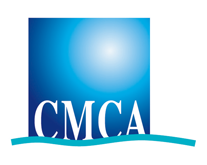History
1949: an ideal, an organisation: URI
At the end of the Second World War education and culture were tools the international community intended to seize fully in order to avoid new conflicts. Radio is one of the best means for sharing and distributing knowledge and values. An idea began to germinate: not only a lot of national radio organisations must regularly give cultural programmes, but also they must take into account parallel efforts from other countries. This idea was expressed during the UNESCO General Conference in Mexico in 1947.
But the initiative and the realisation of an international radio organisation belong to Wladimir PORCHÉ, Director of French Radiobroadcast who gathered the International Conference of Cultural Radio in Nice from February 19 to 26 1949. It was during this Conference that URI (International Radio University) was born, under the double patronage of UNESCO and French Radiobroadcast.
The association gave itself a Charter and an international structure, and quickly had a dozen countries among its members: Austria, Belgium, Finland, France, Great-Britain, the Netherlands, Italy, Luxembourg, Monte Carlo, Switzerland, the United-States, and Poland.
The collaborators were important personalities of the time: Eleanor Roosevelt, Jean Cocteau, Lord Russell, Ivo Andric, Jules Romains, Vittorio de Sica, Ottavio Paz, Jacques Monod, Professor Barnard, Selman Waksman.
1961: URI welcomes television and becomes URTI
URI quickly defined its field of action: to elaborate, broadcast and exchange for free programmes of a cultural nature, on the model of a free university teaching. But it soon had to compromise with the increasing importance of television and the multiplication of channels. URI took up the challenge of joining image – television – to word – radio.
This true mutation began as soon as 1957 with the creation of a film library at URI and was made official in 1961 when the International Radio University became the International Radio and Television University (URTI). A more direct communication through image, a larger public and above all the generous contributions of always more members contributed to the development of URTI.
URTI today
URTI shows today, after more than 60 years of existence, a prestigious assessment and a renewed enthusiasm. Its programme exchanges never were so important, and it confirmed its place at the first rank of the international radio and television grand prix in terms of participating countries.
URTI developed its content offer and its means of distribution:
- Beyond the cultural domain, the programmes in the URTI catalogue insist today on society problems, on the attitude of man in front of political, economical, scientific and ecological mutations in the 21st century. URTI would like to be the reflection of mankind’s preoccupations as they are expressed in the media.
- Developed as soon as 1996, the Web site allows an access to the URTI programme base. It is today a place of programme exchanges and of cooperation thanks to the Exchanges Co-productions Transmissions platform.
URTI presidents since 1949:
- Théo FLEISCHMANN (1949-1965)
- René DOVAZ (1965-1976)
- Gabriel de BROGLIE (1976-1987)
- Roland FAURE (1987-1997)
- Jean-Pierre TEYSSIER (1997-1999)
- Jean-Marie CAVADA (1999-2004)
- Jean-Paul CLUZEL (2004-2009)
- Jean-Luc HEES (2009-2014)
- Amadou VAMOULKE (2014)
- Charles NDONGO (since 2015)


